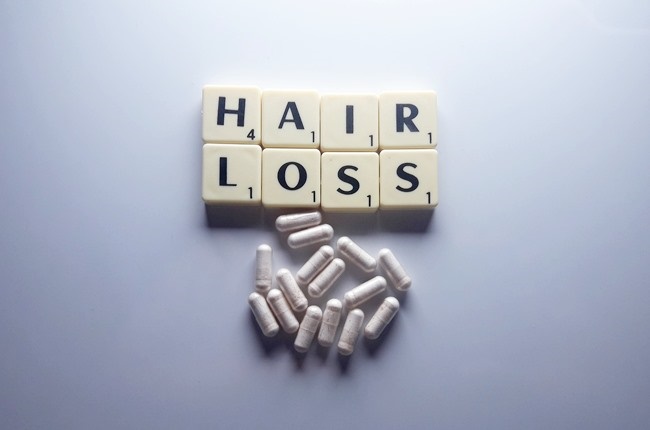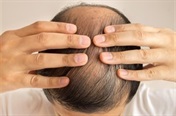
The average person sheds between 50 and 100 hairs per day. This is no real cause for concern, as long as your body is replenishing these losses.
When hair loss begins to exceed these thresholds, then it is time to worry and you could be suffering from alopecia (the medical term for hair loss).
The most favoured explanation is that alopecia areata is an auto-immune disorder, in which antibodies to the person’s own hair follicles are produced.
Alopecia is also found with other auto-immune disorders, such as vitiligo and thyroiditis.
Causes of hair loss
There are five fairly common causes of diffuse hair loss. These are: Telogen effluvium, nutritional disorders, drugs, hormone abnormalities and male pattern baldness (androgenetic alopecia).
In children, hair loss through a scalp infection, such as ringworm, is increasingly common.
Telogen effluvium is temporary hair loss of up to a third of a person's hair due an insult to the body. It usually manifests two to four months after the incident. Common causes are crash diets, exam stress, big operations, pregnancy and divorce/loss of a loved one.
It starts normalising after three to six months and after a year it's almost always back to normal. It is more common in females and needs no treatment.
Nutritional causes of hair loss
The most common nutritional problems associated with alopecia are iron and zinc deficiency. In practice, these are probably the only ones causing alopecia.
Hair loss is also observed in people who consistently take in too much selenium. The average daily intake recommendations for selenium are 60 micrograms per day for men and 53 micrograms per day for women
From this you can see that taking hundreds of vitamins, nutrients, microelements etc. (who knows what some of the concoctions contain), will do no good.
Biotin for instance, can make your hair grow strong and thick, but it will not stop you from going bald. If the blood tests for iron and zinc are normal, a nutritional deficiency is not the cause of your alopecia.
Sex hormones don't play a role in hair loss
Drugs most commonly associated with alopecia are oral contraceptives, the blood thinners warfarin and heparin (Thrombophop), stomach ulcer medication cimetidine, and the beta blocker propranolol.
Birth control pills suppresses ovulation by the combined actions of the hormones oestrogen and progestin or in some cases progestin alone.
Women who are predisposed to hormonal related hair loss or who are hypersensitive to the hormonal changes taking place in their bodies can experience hair loss to varying degrees while on the pill or more commonly, several weeks or months after stopping the pill.
If this is a cause for you, only use low-androgen index birth control pills, and if there is a strong predisposition for genetic hair loss in your family, use a non-hormonal form of birth control.
Chemotherapy is widely associated with hair loss, but this is a reversible hair loss in almost all cases.
Hair loss may occur during radiation therapy for cancer treatment. Radiation therapy damages cells that grow quickly, such as those in the hair roots.
Hair loss may develop two to three weeks after the first treatment session. The hair may grow back three to six months after treatment. However, when very high doses of radiation are used, the hair may not grow back.
Hormone problems may cause hair loss, but not the sex hormones. Neither oestrogen nor testosterone deficiency or excess, plays a role in hair loss.
The diseases that are associated with alopecia are diabetes mellitus and thyroid problems.
From the above you can work out that when you have blood samples taken to determine the cause of your hair loss, one seldom needs to do more than tests for iron, zinc, thyroid hormone, sugar and a full blood count.
Some medications can also cause hair loss, such as medication for acne, hypertension, high cholesterol, antibiotics, weight loss, birth control, Parkinson's disease, hormone replacement therapy and depression.
It's in your genes
Male pattern baldness is the most common form of alopecia and is of genetic predetermination. If there is baldness anywhere in your family (on either on your mother or father's side), you will probably become bald too.
It is with this form of baldness that the drug Propecia® (Finasteride) has shown promising results.
In male pattern baldness, dihydrotestosterone (DHT) causes a shortening of the growth phase and thinning of the hairs. Finasteride blocks an enzyme called 5a-reductase that changes testosterone into DHT and in this way prevents these changes from taking place.
In 99% of men it will stop hair loss within a year, a third will have a slight increase in hair and a third will show marked improvement. Because it works on the changing of testosterone to DHT, it will not work for women and may be very dangerous in pregnancy.
Read more:




 Publications
Publications
 Partners
Partners












